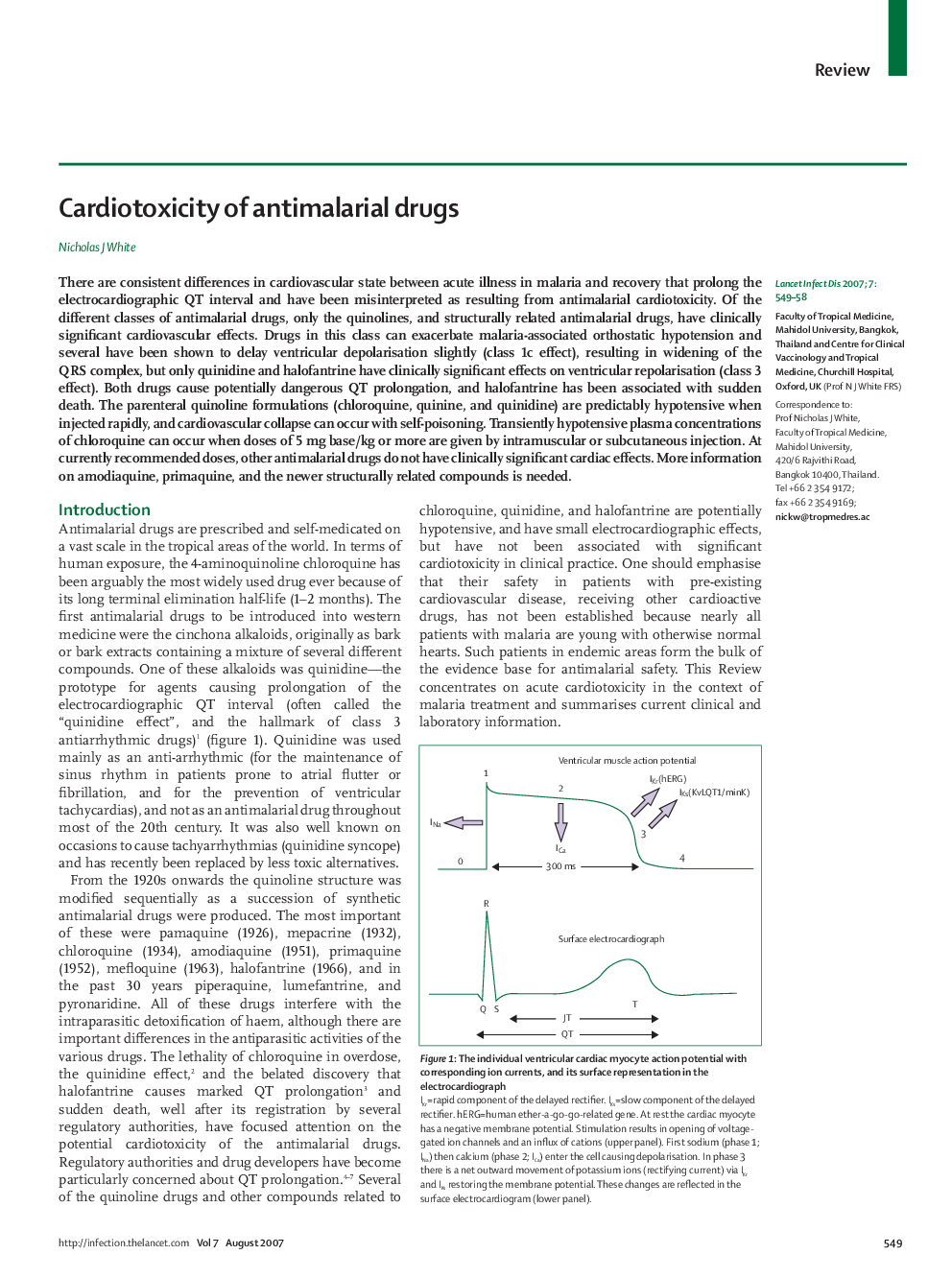| کد مقاله | کد نشریه | سال انتشار | مقاله انگلیسی | نسخه تمام متن |
|---|---|---|---|---|
| 3411087 | 1224116 | 2007 | 10 صفحه PDF | دانلود رایگان |

SummaryThere are consistent differences in cardiovascular state between acute illness in malaria and recovery that prolong the electrocardiographic QT interval and have been misinterpreted as resulting from antimalarial cardiotoxicity. Of the different classes of antimalarial drugs, only the quinolines, and structurally related antimalarial drugs, have clinically significant cardiovascular effects. Drugs in this class can exacerbate malaria-associated orthostatic hypotension and several have been shown to delay ventricular depolarisation slightly (class 1c effect), resulting in widening of the QRS complex, but only quinidine and halofantrine have clinically significant effects on ventricular repolarisation (class 3 effect). Both drugs cause potentially dangerous QT prolongation, and halofantrine has been associated with sudden death. The parenteral quinoline formulations (chloroquine, quinine, and quinidine) are predictably hypotensive when injected rapidly, and cardiovascular collapse can occur with self-poisoning. Transiently hypotensive plasma concentrations of chloroquine can occur when doses of 5 mg base/kg or more are given by intramuscular or subcutaneous injection. At currently recommended doses, other antimalarial drugs do not have clinically significant cardiac effects. More information on amodiaquine, primaquine, and the newer structurally related compounds is needed.
Journal: - Volume 7, Issue 8, August 2007, Pages 549–558